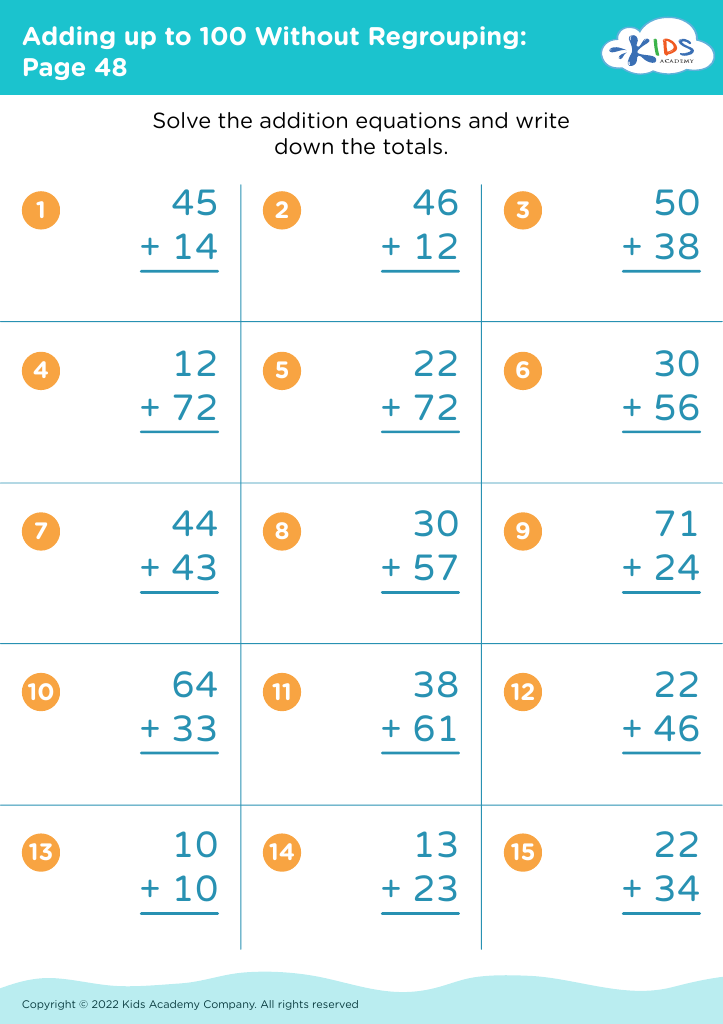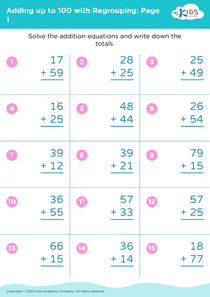Improve reading comprehension Adding up to 100 Without Regrouping Worksheets for Ages 4-7
3 filtered results
-
From - To
Enhance your child's reading comprehension skills with our engaging "Adding Up to 100 Without Regrouping Worksheets" designed for ages 4-7. These worksheets combine math and literacy, allowing young learners to practice addition while building their understanding of reading and problem-solving. By integrating reading comprehension exercises, children learn to follow instructions, identify key information, and develop critical thinking skills. Each activity promotes interactive learning, making math fun and engaging. Perfect for homeschooling or classroom use, our worksheets create a solid foundation for future academic success. Unlock your child's potential and watch them thrive with our thoughtfully crafted educational resources!
Parents and teachers should prioritize improving reading comprehension and basic math skills like adding up to 100 without regrouping for ages 4-7 because these competencies lay the foundation for future academic success and cognitive development. Reading comprehension fosters critical thinking, encourages imagination, and enhances vocabulary, setting the stage for effective communication skills later in life. As children engage with texts, they learn to interpret information, make connections, and develop a love for reading that can last a lifetime.
Simultaneously, mastering addition up to 100 without regrouping enhances a child’s numerical fluency and confidence in math, which is essential for grasping more complex mathematical concepts in later grades. Early math skills enhance problem-solving abilities and logical reasoning, preparing children for everyday situations that require quantitative thinking.
Moreover, at this young age, building foundational skills can greatly reduce the risk of academic struggles later, as children learn to approach subjects with confidence and curiosity. Both reading comprehension and basic math are interrelated; strong reading skills can help children grasp word problems in math, while mathematical practice supports organizational skills invaluable in all learning areas. Thus, supporting these fundamental skills fosters holistic development and equips children with the tools they need to thrive in school and beyond.















